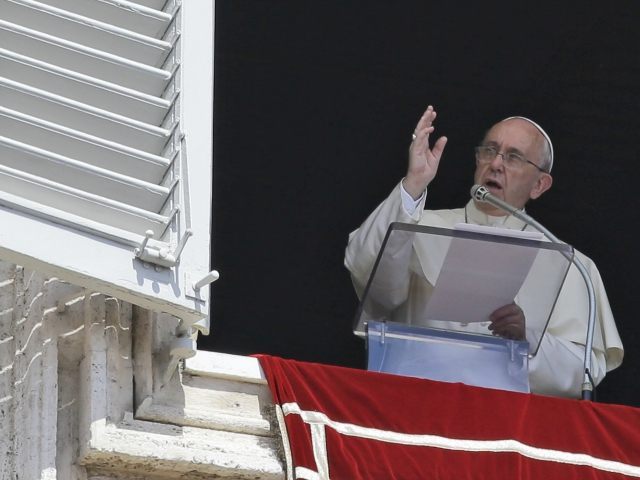For the upcoming Jubilee Year of Mercy, Pope Francis is hammering home the message of forgiveness, urging all the Catholic priests in the Church to dedicate plenty of time each week to hearing confessions.
In an audience Thursday morning with a group of priests of the Schoenstatt movement, Francis implored them to “devote much time to the sacrament of reconciliation,” as an important witness of God’s mercy and a means of bringing people back to God.
“Please, be great in forgiving,” the Pope told them, before recounting the story of a friend of his.
It helps me to remember a brother priest in Buenos Aires, who was great in forgiving. He is about my age and sometimes wonders whether he has forgiven too much. One day I asked him: “What do you do when you have doubts?” “I go to the chapel, I look at the tabernacle and I say, ‘Lord, forgive me, today I have forgiven too much, but remember that You are the one who gave me the bad example.’”
Last month, the Vatican began active recruitment of priests to devote themselves to preaching forgiveness and hearing the confessions of repentant faithful during the upcoming Jubilee Year.
In the spirit of the patron saint of Catholic priests, Saint Jean Marie Vianney—who used to spend up to 18 hours a day hearing confessions in his little parish of Ars, France—the Pope is looking for a few good priests to assist him during the Jubilee year as “missionaries of mercy” for the millions of faithful who will wish to take part in the Sacrament of Reconciliation during the year.
In March, Pope Francis addressed a group of priests about how to be good confessors, just before going to confession himself.
Francis told the priests that their first task was to help penitents experience God’s mercy. “Confession should not be a ‘torture,’” the Pope said, “but everyone should leave the confessional with joy in his heart, his face beaming with hope,” even if sometimes “wet with tears of conversion and the joy that comes from it.”
Francis told the priests that confession should not “become a heavy, annoying, and intrusive interrogation.” It should be a liberating encounter, the Pope said, which also includes the commitment to make reparation, as far as possible, for the evil committed.
The Pope also tried to clear up confusion between mercy and laxity, insisting that they are not the same thing. “Neither an overly indulgent confessor nor a severe confessor is merciful,” Francis said. The first says, “Go on. This is not a sin; don’t worry!” The other simply insists on the rules or laws that have been broken. “Neither of these,” said Francis, “is a brother to the penitent, taking him by the hand and accompanying him on his path of conversion!”
This distinction proved especially necessary this week, where the mainstream media consistently misrepresented the Pope’s message on forgiveness. On Tuesday, Francis announced that for the Jubilee Year all Catholic priests in the Church would have the faculty to absolve women who have had abortions.
Although the Pope called abortion profoundly “unjust” and a “tragedy” that causes “extreme harm” and instructed priests to include in their words of forgiveness “a reflection that explains the gravity of the sin committed,” somehow the media thought the Pope was softening Catholic doctrine on the seriousness of abortion.
What he was really doing was reiterating the Christian belief that no sin—no matter how grave—is beyond God’s power to forgive. In the last Jubilee Year in 2000, Pope John Paul II did exactly what Pope Francis is doing: enabling all priests to offer absolution to women who have had abortions.
The upcoming year of mercy, in the Pope’s mind, will be a year of heavy activity for Catholic priests, who are being called to get out and spread the Christian message of mercy far and wide.
Follow Thomas D. Williams on Twitter @tdwilliamsrome

COMMENTS
Please let us know if you're having issues with commenting.